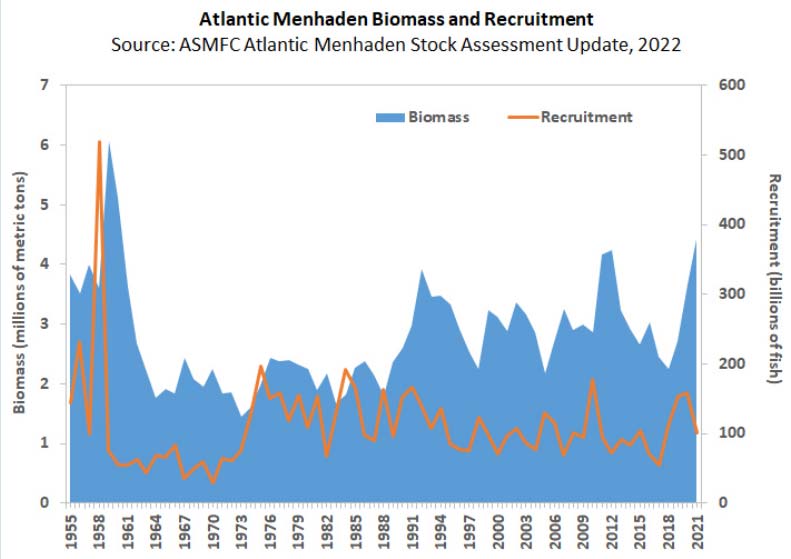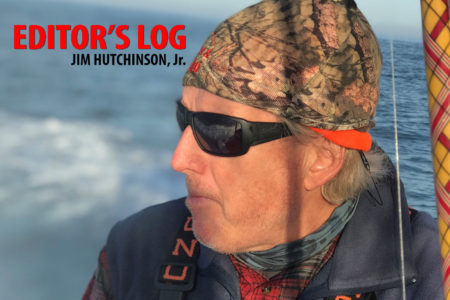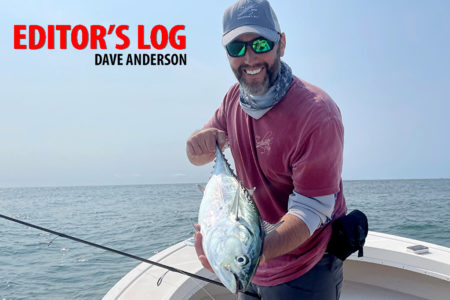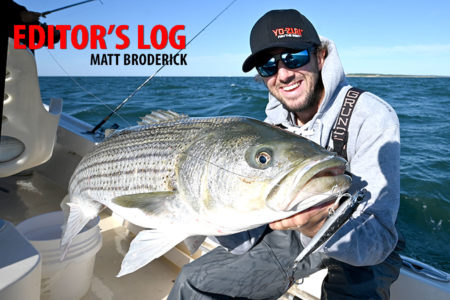New Jersey state lawmakers held a hearing last month to address the recent spate of whale deaths. “The culprit is a changing climate, and our inability societally to get it under control,” warned Shawn LaTourette, commissioner at the New Jersey Department of Environmental Protection (NJDEP). During his testimony, Commissioner LaTourette explained that menhaden have moved closer to shore due to rising ocean temperatures, bringing bunker-eating humpbacks nearer land where they’re at greater risk of ship strikes.
“We shouldn’t be distracted by misinformation,” LaTourette said at the hearing, adding “We should call out disinformation every single time we see it. Because it distracts from the critical work of protecting our constituents from a worsening climate experience.”
Sure Mr. LaTourette, let’s do that, let’s call out disinformation where we see it; like right now for example. As head of NJDEP, surely you must be aware of the Menhaden Protection Bill signed into law in 2002 by New Jersey’s then acting governor Donald DiFrancesco which prohibited the taking of menhaden for reduction purposes (processing bunker into fish meal and fertilizer) in state waters. This law kicked the Omega Protein fleet out beyond the three-mile-line, resulting in a massive resurgence of nearshore bunker schools over the past 20 years.
Couple that with increased harvest restrictions on bunker boats in federal waters enforced by NOAA Fisheries, and it’s easy to understand from the latest 2022 menhaden stock assessment report from the Atlantic States Marine Fisheries Commission why the menhaden biomass has grown to a 62-year high. It’s not climate change Mr. LaTourette, that’s regulatory!

I’m not a licensed cetologist, and I didn’t stay at a Holiday Inn Express last night, thus I’m not able to speak to the cause of marine mammal deaths at the Jersey Shore. But the fact that industrial offshore wind companies have been mapping the seafloor and the geological layers beneath by using high-tech geophysical surveys at the very same time that whales and dolphins began washing up dead along the beaches is does lead to a rather “highly circumstantial” body of evidence.
But, I have studied some of the research about industrial offshore wind, particularly the impacts of electromagnetic fields from high-powered undersea cables on flounder species. I’ve also read the various government reports, including the 388-page technical memorandum released by the Bureau of Ocean Energy Management and Northeast Fisheries Science Center which warns “Any impacts of EMF to the availability of species may result in negative socioeconomic impacts to the fishing industry.”
That same technical memo also explains how NOAA Fisheries’ stock assessment surveys will be adversely impacted by industrial offshore wind, further stating “These impacts will lead to greater uncertainty in abundance estimates, which will likely lead to lower fishery quotas and lost revenue to commercial and recreational fishermen.” One would think that such a profound statement would be of great concern to a NJDEP commissioner tasked with overseeing New Jersey’s fish, fishermen and fishing industry.
From my professional experience, Mr. LaTourette has had very little direct engagement with recreational fishermen. He doesn’t attend fisheries council meetings or outdoor shows, and his administration terminated annual workshops with New Jersey’s outdoor media meant to openly discuss outdoor issues and concerns with hunting and fishing writers. In May of 2021 after he was appointed NJDEP commissioner, I got a chance to ask Mr. LaTourette a few questions on camera during an artificial reef deployment off Manasquan; regrettably, before he agreed to the interview, I had to first agree not to ask any questions about industrial offshore wind.
In hindsight, that was wrong of me journalistically to agree to such a ridiculous request by a government official. And I probably should’ve realized right then and there that the misinformation highway was already being paved, right across the backs of New Jersey’s coastal constituents.




